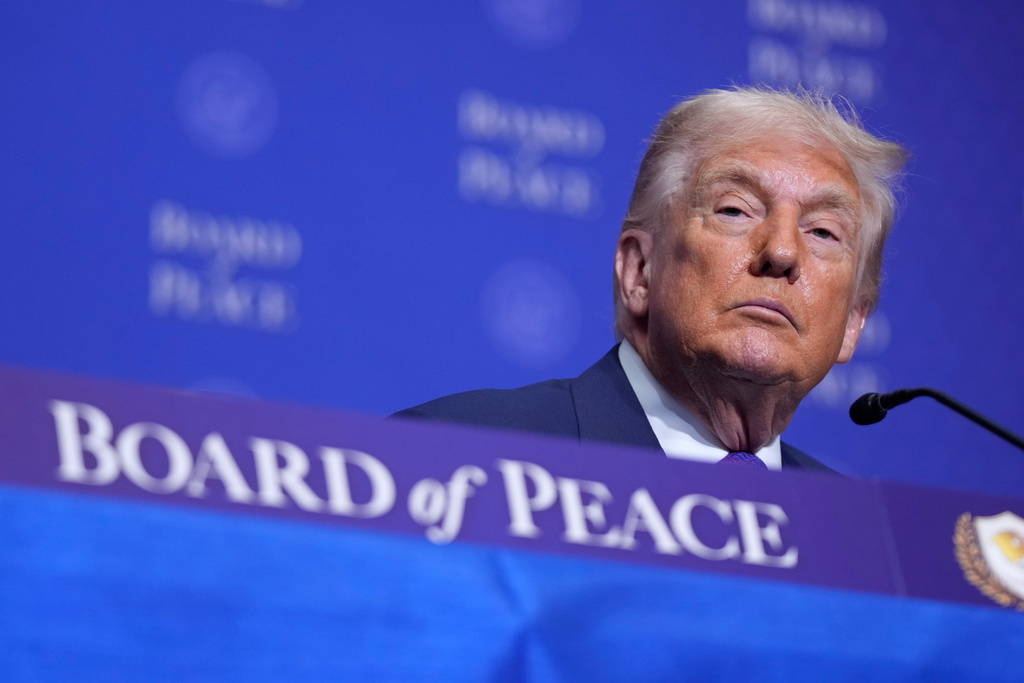Last Friday, May 16, storms and tornadoes ripped through the Midwest and parts of the south leaving 28 people dead. Seven of those 28 were my fellow Missourians.
The local city government of St. Louis quickly joined state and federal elected leaders and jumped into action as a united front in their response.
Don’t Miss Out: Get the latest updates – sign up for emails from No Labels.
As natural disasters intensify across the country, local, state, and federal governments play a crucial role on the frontlines of emergency management and recovery, both on the ground immediately following, as well as in our legislative bodies.
These efforts are most successful when both Democrats and Republicans work together across the political aisle to deliver for their affected communities.
After completing a damage survey, the National Weather Service’s local forecast office said that the tornado that tore across the St. Louis area Friday reached EF-3 intensity. The tornado’s path was 23 miles long, a mile in width, and produced wind speeds as high as 152 mph, killing five in St. Louis, damaging 5,000 buildings and homes, and leaving over 80,000 without power.
Within minutes of the tornadoes touching down, St. Louis City Mayor Cara Spencer was on the phone with Missouri Governor Mike Kehoe. Kehoe credited Spencer for her swift leadership and Kehoe responded just as quickly, providing state resources.
Within less than 24 hours, Spencer, a Democrat, and Kehoe, a Republican, were joined by U.S. Rep. Wesley Bell, a Democrat, and U.S. Sen. Eric Schmitt, a Republican, for a joint press conference.
Schmitt had the following to say: “We are very united from a federal, state, and local level to make sure people who have been injured or who have had damage get the help they need. There’s no daylight between the delegation, the federal delegation, and the mayor, or the governor in that effort.”
While this kind of bipartisan cooperation is crucial to lives in affected communities, the work Congress is doing on a bipartisan basis ahead of these disasters is also needed.
Back in March of this year, Senators Thom Tillis (R-NC), Gary Peters (D-MI), Rand Paul (R-KY), and James Lankford (R-OK) reintroduced the Disaster Assistance Simplification Act. The legislation would simplify the application process for federal disaster recovery assistance, establishing a universal application across federal agencies for disaster survivors who are seeking federal assistance to recover from hurricanes, floods, wildfires, and other natural disasters.
Also in March, the Disaster Mitigation and Tax Parity Act (H.R. 1849) was introduced to the U.S. House of Representatives. This introduction follows the late-January introduction of the same bipartisan legislation in the Senate (S. 336).
The Disaster Mitigation and Tax Parity Act of 2025 ensures that qualified catastrophe mitigation payments—funds provided under state-based programs to strengthen homes against disasters like windstorms, earthquakes, floods and wildfires—are excluded from federal taxable income.
Both of these bills would help property owners before and after disaster strikes.
Bipartisan cooperation is key with natural disasters, by providing more efficient resource allocation and improved coordination. This is what St. Louisans are currently witnessing and experiencing, which is a welcome relief after a devastating tragedy.
Looking for the latest in your inbox? Sign up for emails from No Labels.
Related
Lynn Schmidt
Lynn Schmidt holds a bachelor of science in nursing from the University of North Carolina at Greensboro and a masters of science majoring in political science from the University of Nebraska-Omaha. She is a freelance columnist and editorial board member with the St. Louis Post-Dispatch and a monthly contributor to The Fulcrum. Lynn lives in St. Charles, Missouri with her husband and two daughters.




